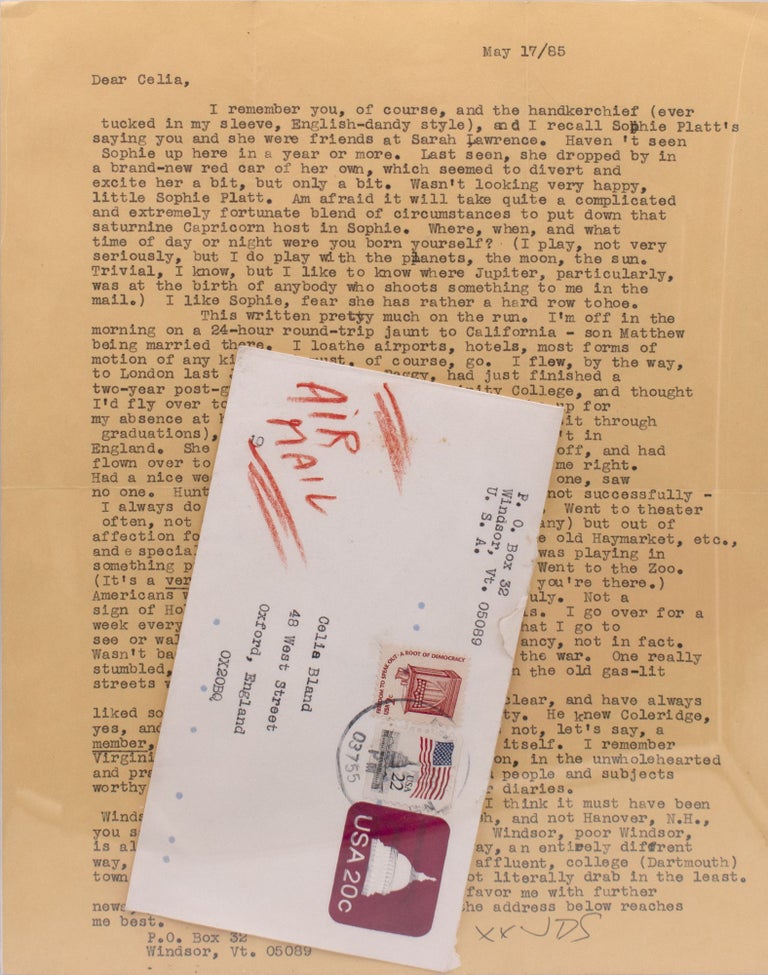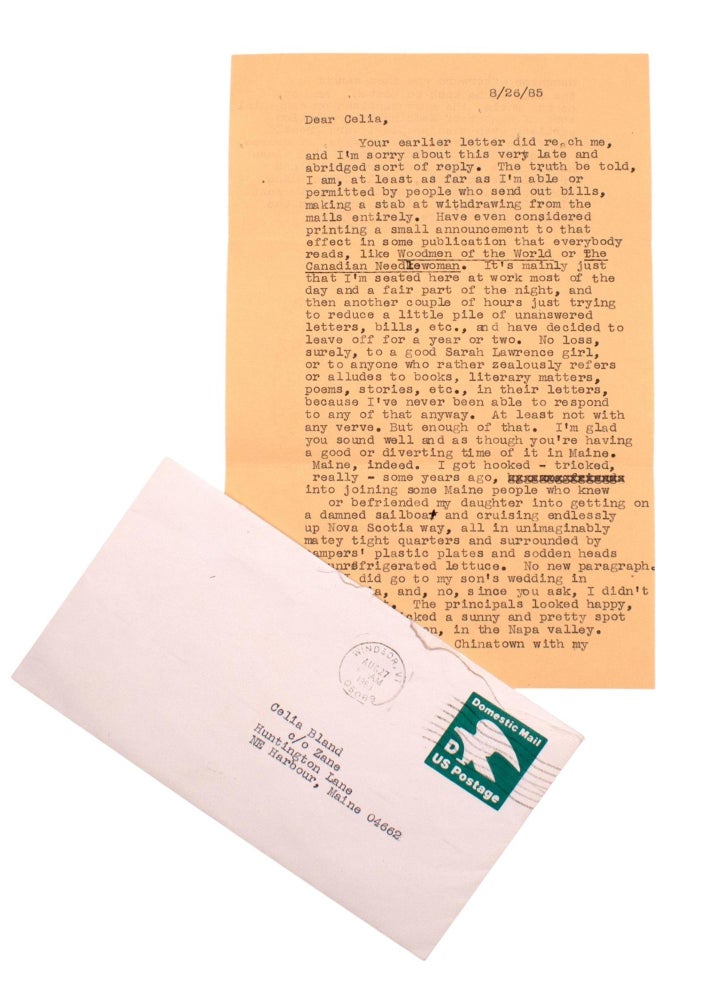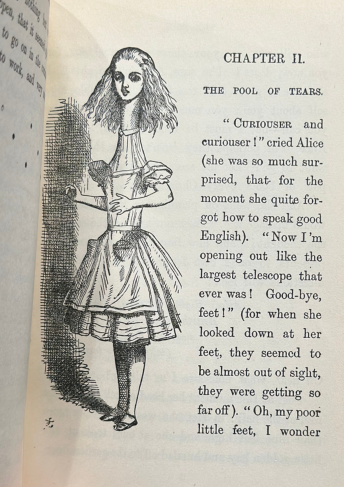Where, when, and what time of day or night were you born…?
Two typed letters, signed "xx JDS" and "JDS", to poet Celia Bland, 17 May and 26 August 1985.
Windsor, VT: 1985.
Price: $25,000.00
About the item
3 pages (279 x 216 and 216 x 140 mm) on yellow typing paper, signed, addressed to Celia Bland in Oxford, England, and Northeast Harbor, Maine. 4to. Where, when, and what time of day or night were you born…? Light horizontal and vertical folds. Typed envelopes. Housed in a half blue morocco clamshell case. Cf. Slawenski, J.D. Salinger, A Life, 2010, p. 384-8.
Item #329774
J. D. Salinger first met poet Celia Bland when she was an undergraduate at Sarah Lawrence College with a friend who lived near Salinger in New Hampshire. “Where, when, and what time of day or night were you born …? (I play, not very seriously, but I do play with the planets, the moon, the sun. Trivial, I know, but I like to know where Jupiter, particularly, was at the birth of anybody who shoots something to me in the mail.)” In the 1970s Salinger wrote a story about an astrologer, and his research made him into an enthusiast who drew up the charts of his family and friends.
Salinger goes on to say he is traveling shortly to attend his son Matthew’s wedding. “I loathe airports, hotels, most forms motion of any kind.” He goes on to relate a misadventure in trying to visit his daughter Peggy in England, only to discover she had gone to the U.S. for a few days: “Had a nice week in London alone anyway. Phoned no one, saw no one. Hunted down some out-of-print books, but not successfully — I always do better, best, in Boston on old books. Went to theater often, not out of love for the Theater (haven’t any) but out of affection for the physical theater in London — the old Haymarket, etc., and especially the tiny theater where Leo McKern was playing in something pretty awful. Walked, bus’d, taxi’d. Went to Zoo... Not a sign of Holmes, anywhere, but then there never is. I go over for a week every couple of years or so, but most of what I go to see or walk past existed solely in fiction or fancy, not in fact. Wasn’t bad at all, though, in blackouts during the war. One really stumbled, bumped into things, but really, as in the old gas-lit streets when the fog rolled in.” Turning to literature, Salinger muses on Hazlitt: “He’s sharp, clear, and have always liked something about his personal unpopularity. He knew Coleridge, yes, and probably the Wordsworths, but he was not, let’s say, a member, and I find that rather commending in itself. I remember Virginia Woolf wrote about him with admiration, in the unwholehearted and practical way she bestowed admiration on people and subjects worthy of grist for her essays or letters or diaries.”
Slawenski says that Salinger had intended to visit a number of people in London, but "spent the week alone in his London hotel room," an account disputed by this letter to Bland. By 1985 his mail had become an ordeal for him, and lack of a response to letters from close friends like E. Michael Mitchell, were excused, when they were at all, by his commitment to his work, his "assignment." He describes something similar to Bland, whom he nevertheless found time to write. As he explains in the second letter:
“The truth be told, I am, at least as far as I’m able or permitted by the people who send out bills, making a stab at withdrawing from the mails entirely. Have even considered printing a small announcement to that effect in some publication that everybody reads, like Woodman of the World or The Canadian Needlewoman. It’s mainly that I’m seated here at work most of the day and a fair part of the night, and then another couple of hours just trying to reduce the little pile of unanswered letters, bills, etc., and have decided to leave off for a year or two.”
Celia Bland is a poet and the Associate Director of the Bard Institute for Writing and Thinking.




